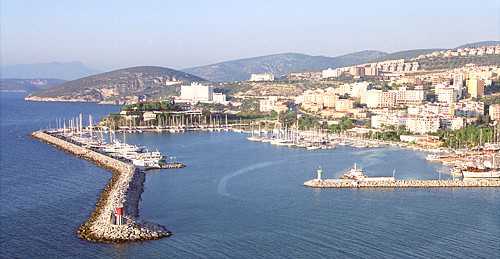BY MATTHEW STONE
Staff Writer 12/11/2008
AUGUSTA — Common threads unite each genocidal act, be it the Armenian genocide, the Holocaust or the genocide in Darfur. There are perpetrators, victims and bystanders. And each genocide involves key stages, including classification of people by their differences, dehumanization of the victims, organization of the campaign against the victims, and a denial of wrongdoing.
Students in Abraham Peck’s “Genocide in Our Time” class at the University of Maine at Augusta have examined genocidal acts throughout the semester, in a first-of-its-kind course offering at the college.
The course is one of a handful UMA students wishing to study genocide in depth will be able to take as part of a new academic concentration in Holocaust, Genocide and Human Rights Studies at the college. The new concentration is likely to begin next September.
Students in Peck’s class Wednesday devoted their final session of the semester to discussing the 1994 genocide in Rwanda, in which militia members from the Hutu ethnic group killed 800,000 to 1 million members of the Tutsi ethnic group.
Approximately 200,000 Hutus took part in the murders, according to Peck, director of the Academic Council for Jewish, Christian and Islamic Studies at the University of Southern Maine.
By comparison, nearly 1 million Germans took part in the 6 million killings of Jews and others during the Holocaust, according to Peck, the son of Holocaust survivors.
“It’s a groupthink kind of thing,” Peck said of genocidal acts.
Peck set a lofty goal for the students in his UMA class.
“I want to change you. I want to change your life and I want you to go out and change other people’s lives,” he said.
Janet Martucci said she enrolled in Peck’s class in an attempt to better understand history. “Genocides continue and I keep trying to understand why,” she said.
After taking the course, Martucci said, she has a better understanding of the syndrome.
“We’ll now be cognizant of these threats in ourselves so they don’t take advantage of us,” said Martucci, of Washington.
Karyn Dickey, of Richmond, said the class led her to take a different view of community service, which she said can be a way of preventing oneself from becoming a guilty bystander.
“I never thought of the fact that being a bystander is actually making you be a guilty part in genocide,” Dickey said.
Gayle Holden, a pastor at West Cumberland United Methodist Church, said a desire to better understand religion’s role in genocide led her to enroll in Peck’s course.
Holden said she is now more conscious about American citizens’ part even in faraway conflicts.
“Now that we know all this information, we can’t be bystanders,” she said.
Matthew Stone — 623-3811, ext. 435


